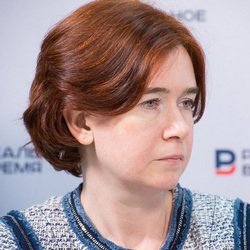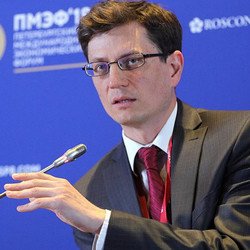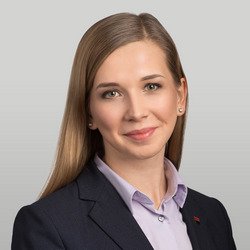So far 7,75%: experts predict the key rate to remain unchanged
The board of directors of the Central Bank will keep the key rate unchanged for the second time in a row, analysts believe, but do not rule out its change in the coming months
All experts interviewed by Realnoe Vremya believe that at the next meeting on March 22 the board of directors of the Central Bank of Russia will keep the key rate at the same level — 7,75%. At the same time, most analysts expect its decrease soon, in the absence of force majeure. However, forecasts regarding its timing have diverged. Read the details in the material of Realnoe Vremya.
The key rate decreased from 7,75% to 7,25% over the year and returned to the previous level
The board of directors of the Central Bank of Russia is considering the issue of the key rate on 22 March. Let us remind that over three years it has decreased from 11% to 7,75% per annum. Last year, the rate fell from the same level to 7,5% in February, then in March to 7,25%. However, six months later, from mid-September, its value was increased to 7,5%. And in the middle of December it went back to 7,75%.
Then the regulator explained that ''the decision taken is proactive and aimed at limiting inflation risks, which remain at a higher level, especially in the short term. Uncertainty remains about the further development of external conditions, as well as the reaction of prices and inflation expectations to the upcoming increase in VAT. An increase in the key rate will prevent the stable consolidation of inflation at a level significantly exceeding the goal of the Bank of Russia.'' By increasing the rate, the Central Bank predicted annual inflation at the level of 5-5,5% in 2019 with a return to 4% in 2020.
Later, at its regular meeting on February 8, the board of directors of the Central Bank of Russia decided to keep the key rate at 7,75%, explaining that the annual inflation in January corresponded to the lower limit of the regulator's expectations, and the inflation expectations of the population and enterprises slightly increased.
''The contribution of the VAT increase to the annual growth rate of consumer prices in January was moderate. The full impact of VAT on inflation can be estimated no earlier than in April this year. There is also uncertainty about the further development of external conditions and the dynamics of prices for certain food products. The balance of risks is still shifted towards pro-inflationary, especially on the short-term horizon,'' the Central Bank said in a press release.
The forecast for annual inflation for 2019 has not changed, a return to 4% was expected in the first half of 2020. The Central Bank of Russia promised to take further actions on the key rate, ''assessing the adequacy of the key rate increase in September and December 2018 to return the annual inflation to the target in 2020, taking into account the dynamics of inflation and the economy relative to the forecast, as well as risks from external conditions and the reaction of financial markets to them.''
Experts unanimously predict the preservation of the key rate at the level of 7,75%
Experts interviewed by Realnoe Vremya on the eve of the meeting of the board of directors of the Central Bank agree that the key rate will remain at the same level.
The head of Sberbank Investment Research, Yaroslav Lisovolik, in the comment to the newspaper notes that ''in many respects this [expected decision to maintain the rate] is determined by a relatively favourable external environment and an improvement in the dynamics of inflation, the trajectory of which is becoming more moderate than previously assumed by the Central Bank. In terms of the external environment, we can note not only relatively favourable oil prices, but also the softening of the fed's position on the further rate hike.''
 ''Inflation continues to accelerate in annual terms and there is no possibility to reduce the rate now. At the same time, since at the end of February inflation was only 5,2% year-on-year and at the end of March probably will not exceed the level of 5,5% year-on-year, further rate hike also does not look necessary,'' says Chief Economist at Alfa-Bank Natalia Orlova.
''Inflation continues to accelerate in annual terms and there is no possibility to reduce the rate now. At the same time, since at the end of February inflation was only 5,2% year-on-year and at the end of March probably will not exceed the level of 5,5% year-on-year, further rate hike also does not look necessary,'' says Chief Economist at Alfa-Bank Natalia Orlova.
''I think that the Central Bank's comment will definitely include an assessment of the VAT effect, and the tone of the comment should become more optimistic. But whether the regulator is ready to announce a new inflation forecast for the year is an open question,'' adds Orlova.
Chief Economist at VTB Capital in Russia Alexander Isakov clarifies that in his report on the monetary policy of the Central Bank the main factors that will affect the dynamics of consumer prices he called the increase in VAT from 18% to 20% in early 2019 and the weakening of the ruble, which occurred in 2018. The Central Bank predicted an increase in inflation to 6% year-on-year in the first quarter of 2019. Rosstat published data on consumer price inflation for January and February, which, firstly, indicate that the peak of inflation will be significantly below 6%.
 ''The effect of the increase in VAT became weaker than the expectations of the Central Bank, because, in our opinion, manufacturers and firms took into account the upcoming change in the VAT rate on the eve of the increase, pricing their expectations in, that is, the future increase in VAT was partly priced in at the end of 2018.''
''The effect of the increase in VAT became weaker than the expectations of the Central Bank, because, in our opinion, manufacturers and firms took into account the upcoming change in the VAT rate on the eve of the increase, pricing their expectations in, that is, the future increase in VAT was partly priced in at the end of 2018.''
Another factor the expert calls the weakening of real demand in the economy — producers and firms do not have a ''market force'' that would allow them to shift their costs on the consumer without losing demand for their products. ''Finally, the ruble has strengthened since the beginning of the year by more than 4%, the Federal Reserve Bank of the United States has tempered rhetoric, and the premium for the Russian risk has decreased since the beginning of the year,'' says Isakov.
Deputy Director of ACRA Sovereign Ratings and Forecasting Group Dmitry Kulikov says that the effect of the change in VAT rate on prices occurred completely in 3 months (December-February) — the accumulated effect was about 1,3 p. p.
 ''Our inflation forecast for 2019 is 4,7-4,8% (December to December). I suppose that the Central Bank of Russia will be cautious in officially summarizing the results of the effect because international experience shows that some effects may persist for six months. Therefore, if the official forecast is revised, it is unlikely to be below 5%,'' Kulikov said.
''Our inflation forecast for 2019 is 4,7-4,8% (December to December). I suppose that the Central Bank of Russia will be cautious in officially summarizing the results of the effect because international experience shows that some effects may persist for six months. Therefore, if the official forecast is revised, it is unlikely to be below 5%,'' Kulikov said.
Economists expect lower inflation forecast for 2019
''At the upcoming meeting, in addition to the decision on the CBR rates, the expectations for economic dynamics and inflation for 2019-2020 will be updated. As noted by the leaders of monetary policy in the Central Bank of Russia in March, the dynamics of inflation was less pronounced against the background of a weaker effect of VAT, so the excess of consumer price growth (CPI) to the level of 6% year-on-year in the coming months is extremely small,'' said Citi Economist in Russia, Ukraine and Kazakhstan Artem Zaigrin.
 In this regard, the expert believes that, most likely, the Central Bank of Russia will soften the tone of the statement, as well as reduce the forecast for the peak of inflation in 2019.
In this regard, the expert believes that, most likely, the Central Bank of Russia will soften the tone of the statement, as well as reduce the forecast for the peak of inflation in 2019.
In the department of market analysis at Gazprombank, they consider the main factor of price growth in February the fruit and vegetable segment, where prices are subject to seasonality. While core inflation (purified from seasonal effects and administrative nature) in February slowed down to 0,4% from 0,6%.
Experts from the GPB also note a decline in inflation expectations for the first time after the VAT increase. In addition, external factors make it possible to maintain the key rate: ''Since the latest meeting (February 8), oil has risen by ~8% to the level of 67 dollars per barrel. Additional support for oil quotes was provided by the statements of the minister of energy of Saudi Arabia that the decision to extend the OPEC+ transaction can be made in June. The exchange rate of the ruble to the dollar, in turn, rose by 1,4% to 64,5 for the same period. Large payments of income tax and extraction tax at the end of March push the ruble towards further strengthening.''
The ministry of economic development, in turn, confirmed the forecast for price growth at the end of the year at 4,3% against the exhaustion of the effect of VAT increase.
Chief Analyst at BKS Premier Anton Pokatovich agrees with his colleagues regarding the preservation of the key rate at the level of 7,75%:
''If today it could be assumed that such market realities remain conditionally stable in the future of 2019, the issue of reducing the key rate could be on the agenda at the March meeting. However, we believe that it is hardly possible to count on the preservation of such optimistic stability in relation to Russian assets now — the threat of sanctions risks remains relevant, and the scale of the negative impact in the case of the implementation of these risks we assess as high,'' concludes Pokatovich.
Chief Analyst at Promsvyazbank Denis Popov also notes that the regulator needs time to assess the adequacy of the decisions taken in September and December concerning the key rate and suggests that the Central Bank may pay more attention to the risks of slowing economic growth: ''The ministry's forecast assumes GDP growth in 2019 of 1,3%, which is close to the lower limit of the Central Bank's forecast (1,2%-1,7%) and significantly lower than the estimates of potential output (1,5%-2%), which means that in the future a transition to a stimulating interest rate policy may be required.''
 Analyst at Finam Group Sergey Drozdov, agreeing with his colleagues regarding the preservation of the level of the key rate, adding that ''now one of the priority tasks for the Russian regulator, in addition to the containment of inflation, is the preservation of the attractiveness of the domestic debt market. And the pause in the cycle of tightening monetary policy, taken by the US regulator, will directly affect the decision of the Central Bank, which will also leave the rate unchanged, keeping it at 7,75%.''
Analyst at Finam Group Sergey Drozdov, agreeing with his colleagues regarding the preservation of the level of the key rate, adding that ''now one of the priority tasks for the Russian regulator, in addition to the containment of inflation, is the preservation of the attractiveness of the domestic debt market. And the pause in the cycle of tightening monetary policy, taken by the US regulator, will directly affect the decision of the Central Bank, which will also leave the rate unchanged, keeping it at 7,75%.''
Dmitry Kharlampiev, the director for analytics of the corporate and investment department at Otkritie Bank, notes the rather restrained, compared to August-September 2018, reaction of the Russian financial market to the resumption and strengthening of sanctions rhetoric by the US authorities in February this year. Konstantin Kochergin, the director of treasury at Vostochny Bank, expects that on Wednesday the US Federal Reserve will announce the possibility of transferring the balance sheet reduction to the end of 2019. This will lead to an even greater increase in investors' appetite for risky assets, support a favourable macroeconomic environment and a comfortable level of liquidity in the world economy.
Favourable external environment and improved inflation dynamics will allow to reduce the rate in the second half of the year. The main thing — without force majeure
Most of the experts interviewed by Realnoe Vremya predict a decrease in the key rate until the end of the year in the absence of shocks. However, assumptions about the timing of such actions of the regulator slightly differ.
 Improving in the dynamics of inflation, favourable external environment are probably to contribute to the softening of the Central Bank's rhetoric during the current year and increasing the likelihood of reducing the key rate in the second half of the year, says Yaroslav Lisovolik from Sberbank Investment Research.
Improving in the dynamics of inflation, favourable external environment are probably to contribute to the softening of the Central Bank's rhetoric during the current year and increasing the likelihood of reducing the key rate in the second half of the year, says Yaroslav Lisovolik from Sberbank Investment Research.
Anton Tabakh, the managing director of macroeconomic analysis and forecasting at Expert RA, notes that it is too early to talk about a rate cut in the face of rising inflation, as this may reduce the predictability of the Central Bank's policy. The rate change is more likely to occur in June, and tightening monetary policy is possible only in the case of strong external shocks, which are not, Tabakh believes.
 Against the background of possible approximation of inflation to the target level of 4% faster than previously predicted, ''in terms of the preservation of a stable situation on the foreign markets and in the absence of aggressive sanctions headers, the Central Bank of Russia may go on to the reduction of the key rate in the fourth quarter of 2019,'' says Anna Zaigrina from Rosbank.
Against the background of possible approximation of inflation to the target level of 4% faster than previously predicted, ''in terms of the preservation of a stable situation on the foreign markets and in the absence of aggressive sanctions headers, the Central Bank of Russia may go on to the reduction of the key rate in the fourth quarter of 2019,'' says Anna Zaigrina from Rosbank.
BKS Premier is even less optimistic. Chief Analyst of the financial company Anton Pokatovich believes that while the geopolitical risk in Russia is characterized by a high degree of uncertainty, the key rate will remain unchanged. The expert expects that the rate of 7,75% will remain until the end of 2019, and in the case of the implementation of sanctions risks, the issue of an additional increase in the key rate may become relevant.